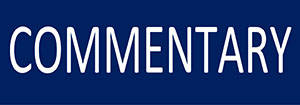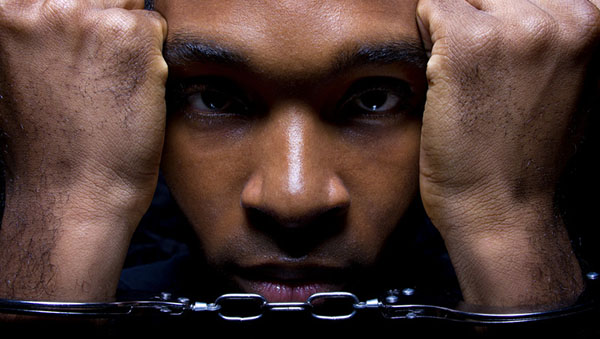By Yvonne Sam
Social and Political Commentator
 The nagging question is why is it always about race? The answer does not lie very far from the question, although most folks hate to admit same. Let us face the facts — racism does exist, although often treated like the elephant in the room.
The nagging question is why is it always about race? The answer does not lie very far from the question, although most folks hate to admit same. Let us face the facts — racism does exist, although often treated like the elephant in the room.
In other instances when the conversation focuses on race, most white folks say “I don’t see color”. According to Doreen Loury, director of Pan African Studies at Arcadia University, near Philadelphia, racism penetrates every aspect of our societal pores, and we must understand that it is a system of advantage, based on race, and desist from making racism something personal. www.mixedracestudies.org/?tag=doreen-loury
Beginning today, May 29, Starbucks will close its 8,000 coffee shops in the U. S. to provide its employees with racial bias training, geared towards preventing racial discrimination. In Canada, on June 11, all company -owned locations will close for an afternoon, also to provide sensitivity and diversity training.
The decision follows the unwarranted and disputed arrest ,on April 12, of two black men, Rashon Nelson and Donte Robinson, at a Starbucks location in Philadelphia. The two men were arrested, when white employees called the police, claiming that the men were trespassing for not buying anything.
 The men were awaiting the arrival of a business associate, and had asked an employee to use the bathroom, — a request that prompted the police being called, leading to them being arrested and escorted out.
The men were awaiting the arrival of a business associate, and had asked an employee to use the bathroom, — a request that prompted the police being called, leading to them being arrested and escorted out.
From time immemorial, people of color have been the victims of racial profiling in both public and private places and spaces. Now social media and cellphone cameras have made it much easier to draw attention to such incidents.
For although racial segregation is illegal, nevertheless there remain the deep-rooted biases about who belongs where and when.
Other unsettling incidents in recent weeks, involving whites calling the police on blacks involve the April 28, calling of the police, twice, by the white owner of a Pennsylvania country club, who claimed that five black women were playing golf too slowly.
On April 29, a white woman reportedly called Oakland police on a few black people who, she said, were using a charcoal grill in an area where it was banned.
Three Black friends leaving an Airbnb rental in Rialto, 60 miles east of Los Angeles, on April 30, were quickly surrounded by a group of police cars and an overhead helicopter,after a white neighbor called police and reported them as possible burglars.
On May 5, Michael Hayes, a Black real estate investor, was in a Memphis neighborhood inspecting a house that he was interested in buying. The home was boarded up, and as he was pulling the board off the front of the home, the white woman next door came out, and inquired what he was doing. He told her that he was an investor, that he had a contract and pointed to the For Sale sign he had placed in the front yard.
According to Hayes, the white female said that he had no right to be in her neighborhood and should leave. She then called the police.
On May 9, a 34-year-old black graduate student at Yale University, Lolade Siyonbola, fell asleep in the dormitory common room while working on a paper. A white student turned on the lights in the common room, found her asleep and called the campus police. The black student was detained for 15 minutes by the police, just to, as one police stated, “make sure you belong here”.
She was later released without incident.
In America, one can get arrested for pulling a fire alarm, making false bomb threats, making false claims; then why not a false police report that has caused death in some instances?
These avoidable police encounters typify how, in modern-day U.S.A, Whites still view Blacks through a lens of suspicion, and how they utilize the racial privilege they have enjoyed from birth.
Citizens are encouraged, by police agencies, to act as their eyes and ears, and to make a report whenever something appears suspicious. However, when black skin becomes a component for appearing cautious or wary, then citizen surveillance becomes an invitation for trouble.
The continued practice is troubling, not only because the calls are unwarranted, but given the history of police brutality against Blacks, a white person’s readiness to call the police is an invitation to end an otherwise everyday misunderstanding, with the opportunity for violence and death.
Therein lies the reason why it is deplorable, when 911 is transformed into a personal hotline, cops being used as racism valets, being summoned for something ridiculously minor, or because black behavior makes the white caller uncomfortable, or simply because they think that we might be up to no good.
In America, one can get arrested for pulling a fire alarm, making false bomb threats, making false claims; then why not a false police report that has caused death in some instances? There should be an all-out push for prosecution to the full extent of the law against these callers. The time has come to consider white people as equal a threat, as the police that they call to carry out their bidding.
After the Starbucks arrest, Jason Johnson noted in The Root that not only are police law enforcers, but also enforcers of social norms and hierarchies. In America, the norm is white comfort and the hierarchy is racial. www.theroot.com/from-starbucks-to-hashtags-we-need-to-talk-about-why-w-182528408
Wherein then lies the solution to this recent spate of 911 calls gone awry?
Any discussion regarding how White Americans rely on the police must also start with how Black Americans experience law enforcement.
Most whites see the police as their protectors, and in America, that was indisputably founded on racism. There will always be those who look for protection from blackness.
The time has come for both sides of the ugly dynamics to be addressed, as these incidents highlight the racial divide in how whites and blacks experience shared spaces. How did we arrive at equating safety and comfortability with a 911 call?
Yvonne Sam, a retired Head Nurse and Secondary School Teacher, is Vice-president of the Guyana Cultural Association of Montreal. A regular columnist for over two decades with the Montreal Community Contact, her insightful and incursive articles on topics ranging from politics, human rights and immigration, to education and parenting have also appeared in the Huffington Post, Montreal Gazette, XPressbogg and Guyanese OnLine. She is also the recipient of the Governor General of Canada Caring Canadian Citizen Award.
 Pride News Canada's Leader In African Canadian & Caribbean News, Views & Lifestyle
Pride News Canada's Leader In African Canadian & Caribbean News, Views & Lifestyle





